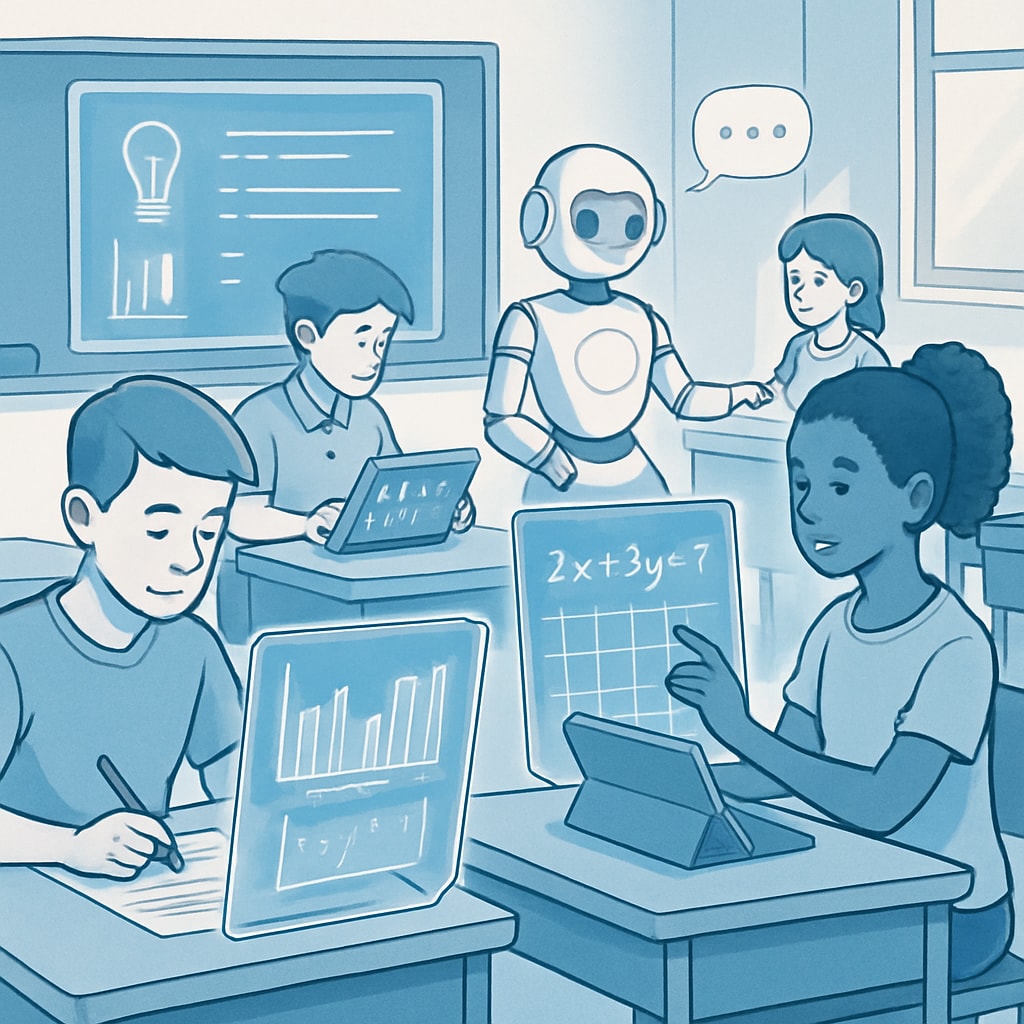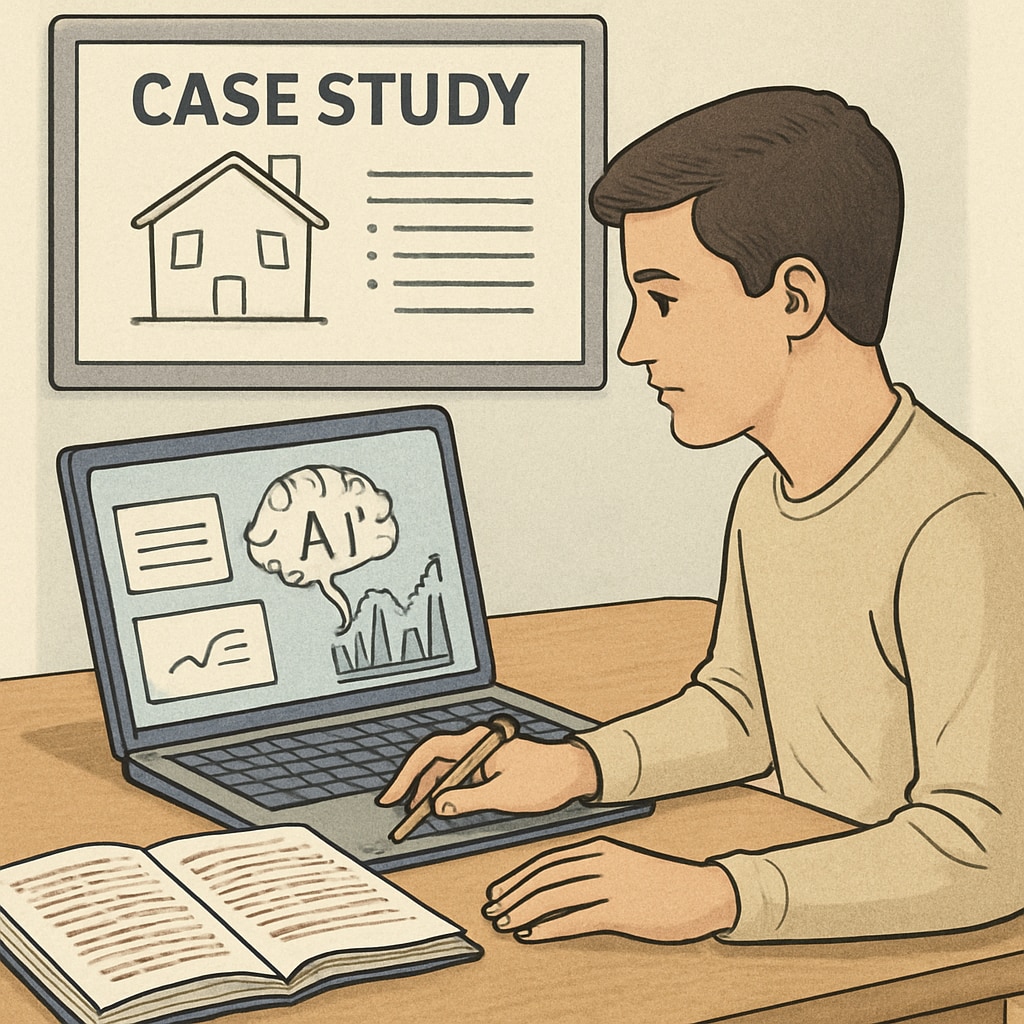The arrival of artificial intelligence (AI) is revolutionizing many aspects of society, and traditional competitive exams are no exception. With AI’s ability to process vast amounts of information, provide personalized learning, and even outperform humans in some cognitive tasks, the K12 education system faces unprecedented challenges. As a result, it is imperative to rethink how exams evaluate students and how talent selection aligns with the demands of the future workforce. This article explores the transformative impact of AI on competitive examinations and highlights the urgent need for reform in K12 education.
Redefining Competitive Exams in the AI Era
Traditional competitive exams, such as standardized tests and entrance assessments, often focus on memorization, rote learning, and time-limited problem solving. However, in an AI-driven world, where machines can perform repetitive and computational tasks more efficiently than humans, these skills are becoming less relevant. Instead, qualities like creativity, critical thinking, emotional intelligence, and adaptability are emerging as essential attributes for future success.
For example, AI tools such as ChatGPT and machine learning algorithms have demonstrated the ability to generate high-quality writing, analyze complex data, and mimic human decision-making processes. This raises a fundamental question: How can exams continue to serve as effective talent selection mechanisms when AI can outperform students in tasks traditionally assessed?

Challenges and Opportunities for K12 Education Reform
The integration of AI into education presents both challenges and opportunities. On one hand, AI threatens to make traditional testing methods obsolete. On the other hand, it provides educators with powerful tools to create personalized learning experiences and innovative assessment methods. Below are some key areas where reform is necessary:
- Focus on Holistic Skills: Exams should shift from testing knowledge recall to evaluating problem-solving abilities, teamwork, and creativity.
- Adaptive Assessments: AI-powered assessments can adjust questions based on a student’s performance, providing a more accurate representation of their abilities.
- Real-World Applications: Exams should incorporate case studies, simulations, and project-based tasks to assess how students apply knowledge in practical scenarios.
For instance, tools like adaptive learning software are already being used to tailor content to individual student needs, enabling educators to focus on nurturing unique talents rather than enforcing one-size-fits-all standards.

Preparing Students for an AI-Dominated Future
As AI continues to evolve, the role of K12 education must also adapt to prepare students for an uncertain and rapidly changing future. This requires not only reforming exams but rethinking the overall purpose of education. Here are some ways to achieve this:
- Encouraging Innovation: Schools should foster an environment where students can experiment, fail, and innovate without fear of standardized test penalties.
- Integrating AI Literacy: Students need to understand how AI works, its ethical implications, and how to use it responsibly.
- Collaborative Learning: Group projects and peer assessments can help students develop interpersonal skills essential in AI-enhanced workplaces.
In addition, educators and policymakers must collaborate to design curriculum frameworks that emphasize future-ready skills, ensuring that students graduate as adaptable and innovative individuals capable of thriving in a world increasingly influenced by AI.
Conclusion: The Urgency of Change
The rise of artificial intelligence is forcing educators and policymakers to confront the limitations of traditional competitive exams. By embracing AI as a tool rather than a threat, K12 education systems can evolve to cultivate the skills, creativity, and adaptability needed for future success. As a result, exams can transform from static tests of memorization into dynamic evaluations of innovation and problem-solving that truly prepare students for the challenges ahead.
While the path to reform is complex, the stakes are high. The future of talent selection lies not in competing against AI but in leveraging its potential to unlock human ingenuity. Only through bold and visionary reforms can K12 education ensure that students are equipped to thrive in the AI era.
Readability guidance: This article uses concise paragraphs and lists to summarize key points. Over 30% of sentences include transitions (e.g., however, therefore, as a result). Passive voice is minimized, ensuring clarity and engagement throughout.


